The EU Summit ended a couple of days ago. It agreed to a package of 750 billion € coronavirus recovery fund. It was a hard marathon meeting. The leaders of the European countries arrived in Brussels with very distant approaches that made the agreement difficult, but no one was too interested in a summit’s failure.
All countries have been hit by the pandemic, but some more (much more) than others. This meeting had to settle the bases for an economic plan that would provide sufficient funds to mitigate the damage caused by the pernicious virus.
The star of the meeting has been the so-called “frugal” countries: The Netherlands, Danemark, Austria, Sweden and – to some accounts – Finland. (read the letter in Financial Times by the leaders of the frugal countries). This five, well-managed, competitive, responsible countries, wanted – among other things – to condition the loans or subsidies to reforms in those countries that, because of their weak economic structure, most suffered the crisis.

They were not asking for anything that they do not apply to themselves resulting in excellent results: they want those other economies to turn into top economies as well. But their request sounded like an anathema to many. “How do they dare to condition their help? How can they show such a lack of solidarity? They should give us their money without questions (and wait with the wallet open until we need some more).” This was the unfortunate reaction of those who wanted to get funds without owing explanations.
Let’s see the starting point, in the Global Competitiveness Index report 2019, of the five bad guys (the position in rank) and that of the largest receivers of the EU Covid-19 aid:
4 The Netherlands
8 Sweden
10 Denmark
11 Finland
15 France
21 Austria
23 Spain
30 Italy
The frugal countries lead the race. In my understanding, Spain and Italy should try to figure out why the other countries do better – because it is clear that in many ways they do better – and copy, instead of feeling insulted.
The European Union must show solidarity, but this flows in two directions. You help me when I need you, and I try to recover to help you when you need me. If some countries want to be in the position of always receiving and not making any effort to progress, the project will not work.
To discredit the “frugal”, mainly the Netherlands, it has been said that they are “tax haven.” This assessment has been repeated so much that people believe that the Dutch pay no taxes. Let’s see the tax rates in Europe:
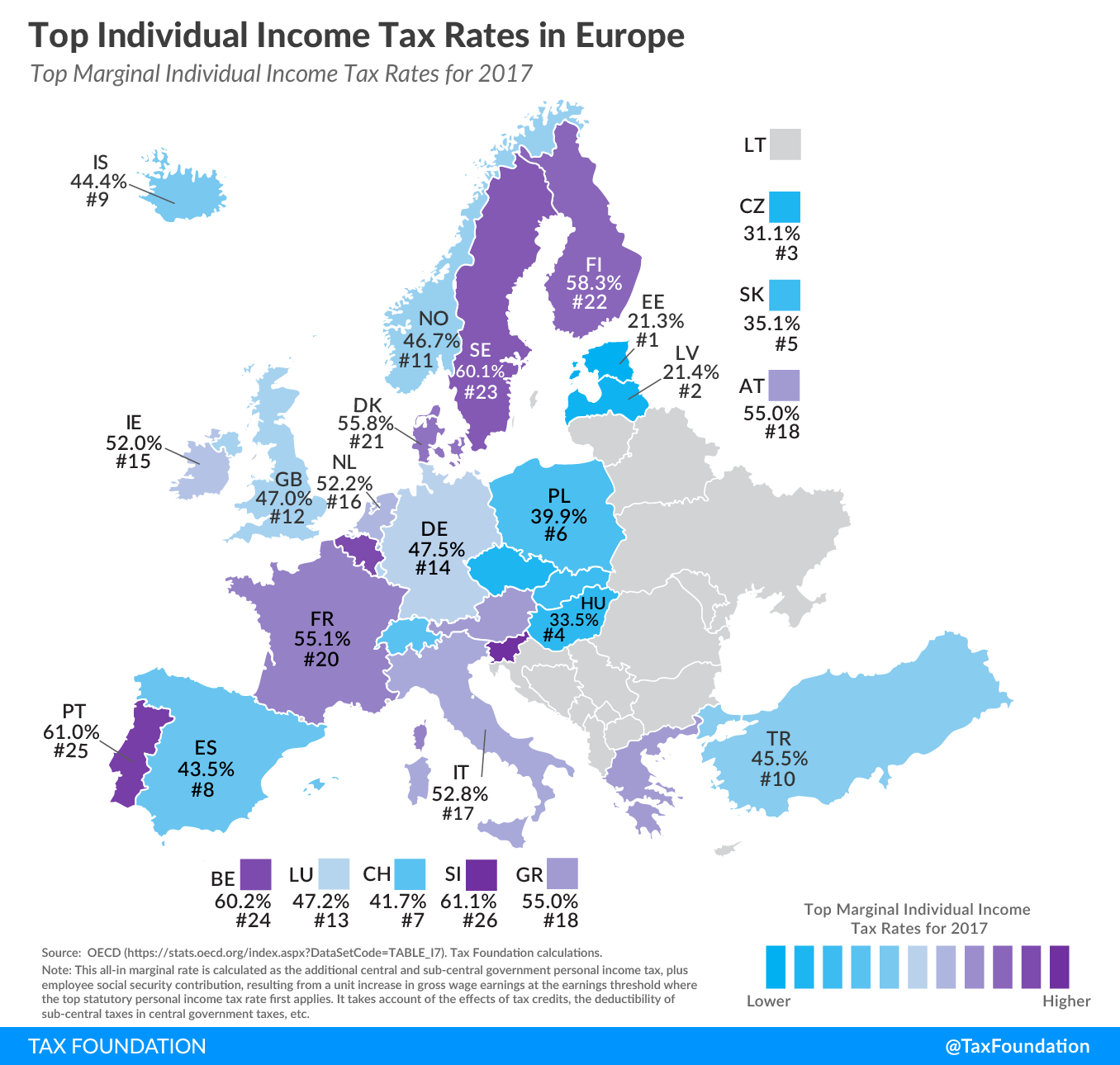
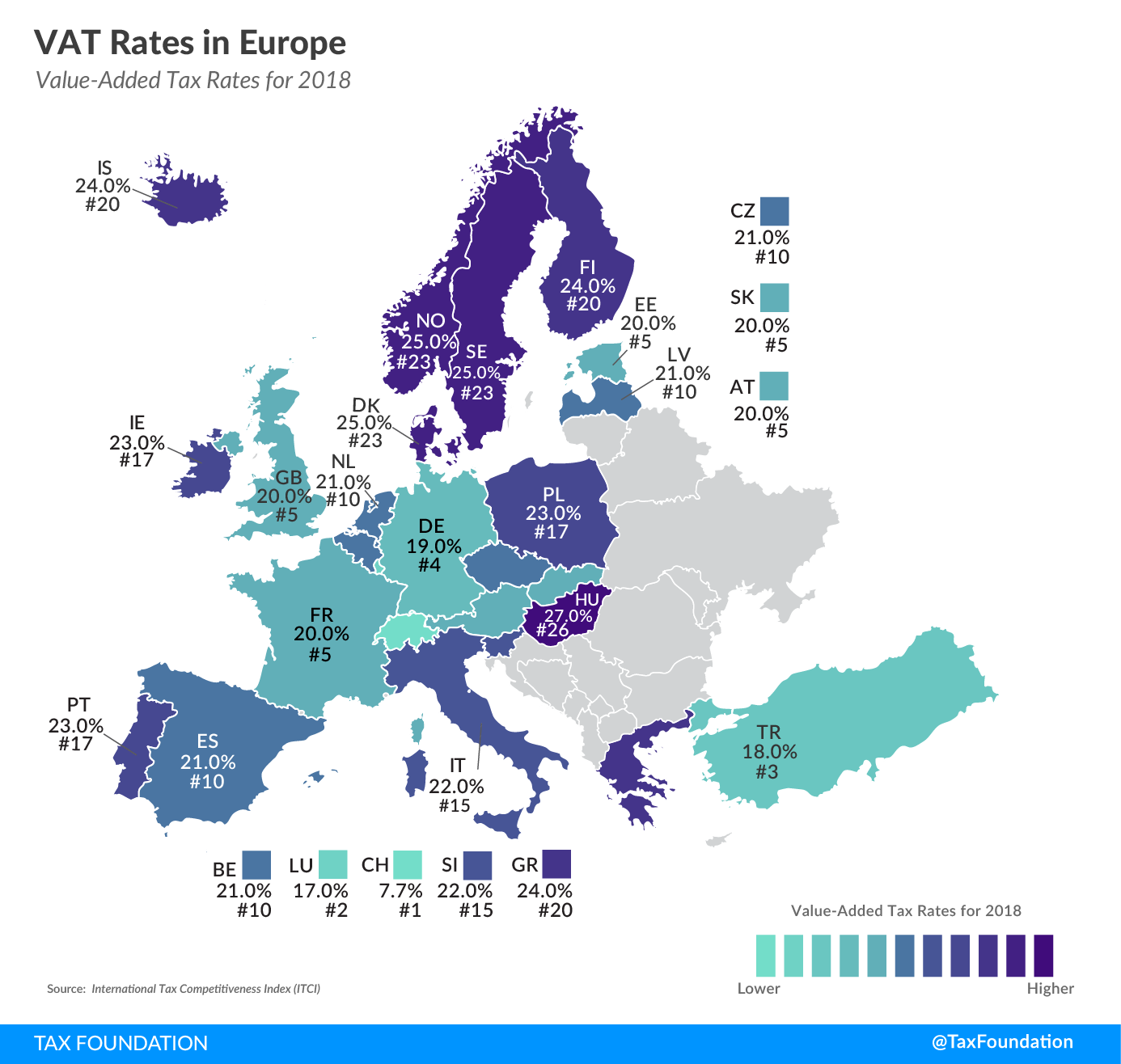
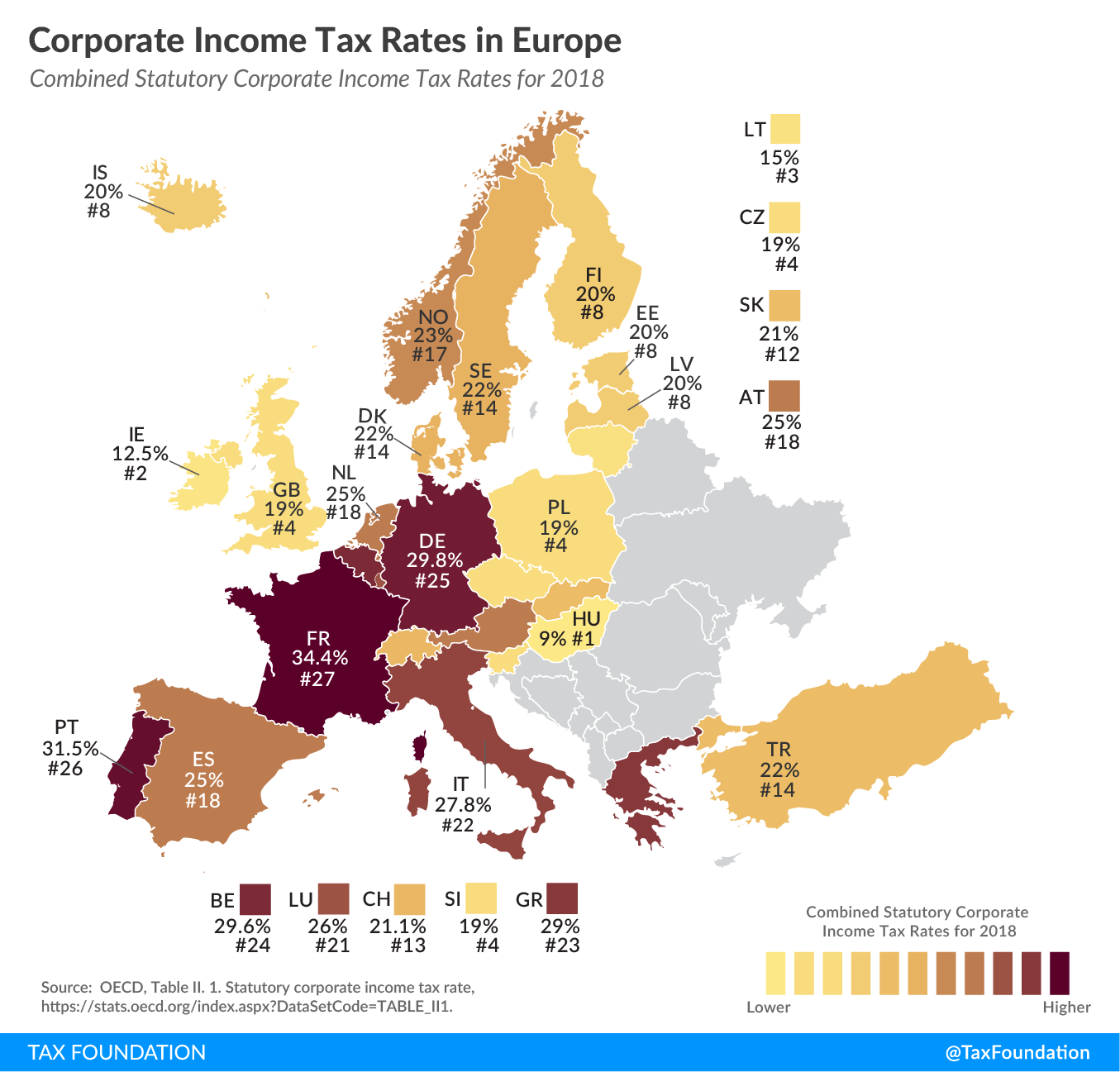
These taxes are responsible for most of the income of any European government. As we can see, none of the “frugal” is a tax haven, rather the opposite. The Netherlands indeed has a particular regime for a specific type of companies (IT, medical, R&D,..) that is very advantageous. Still, it is also true that this is being dismantled and that the companies taking advantage of those reduced taxes, would go to other low tax countries before coming to Spain, Italy or France, countries that often complain about this.
It has also been said, that they want to impoverish the workers in the Southern countries by removing their contract termination compensations. In 2012 Spain introduced a new labour frame which establishes twenty days of indemnity per year in the company for unjustified dismissal. In the Netherlands, it is ten days per year, in Denmark, one month of salary, full stop.
Another request from the evil five was that the receivers should make the necessary changes in their system of retirement pensions to make it sustainable. I have heard many barbarities about this matter such as “the Dutch want us to kill our elderly so that we do not pay pensions.” or ” the Dutch kill their own elderly when they go to a hospital because they are not useful anymore.”
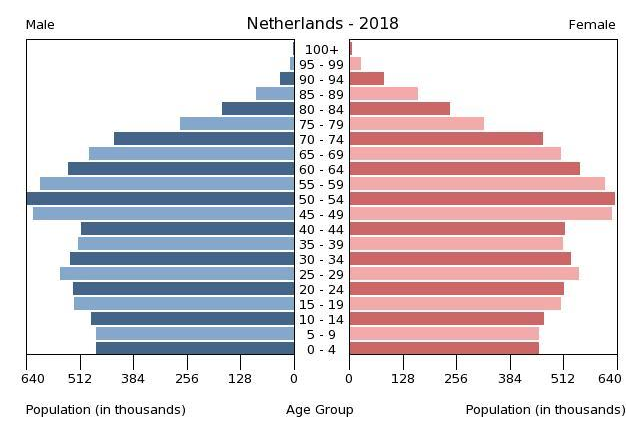
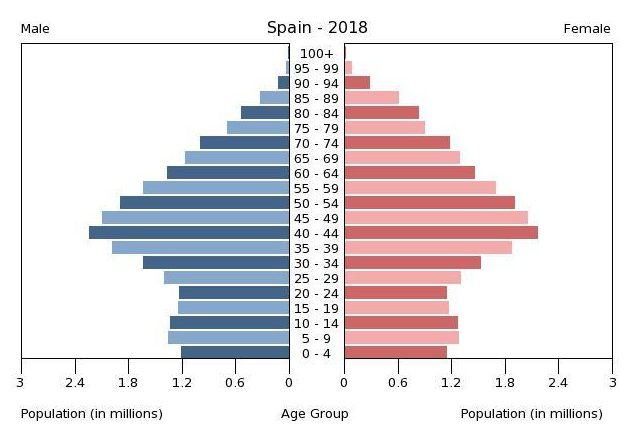
Simply stupid. If we look at the age pyramids of The Netherlands and Spain and the age distribution, we will see that there is a slightly higher % of people in retirement age in the Netherlands than in Spain. The Netherlands has the same problem of sustaining pensioners as Spain, but the system works much better, and it is not used as an electorate weapon by the political parties.
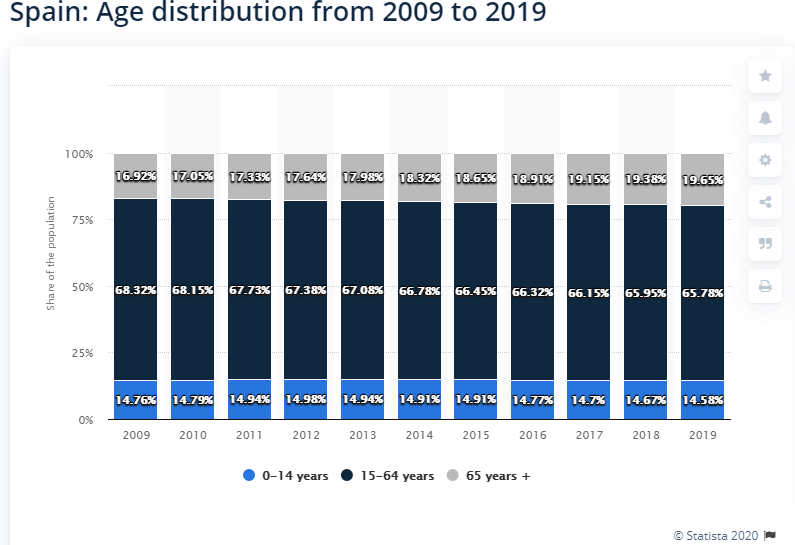
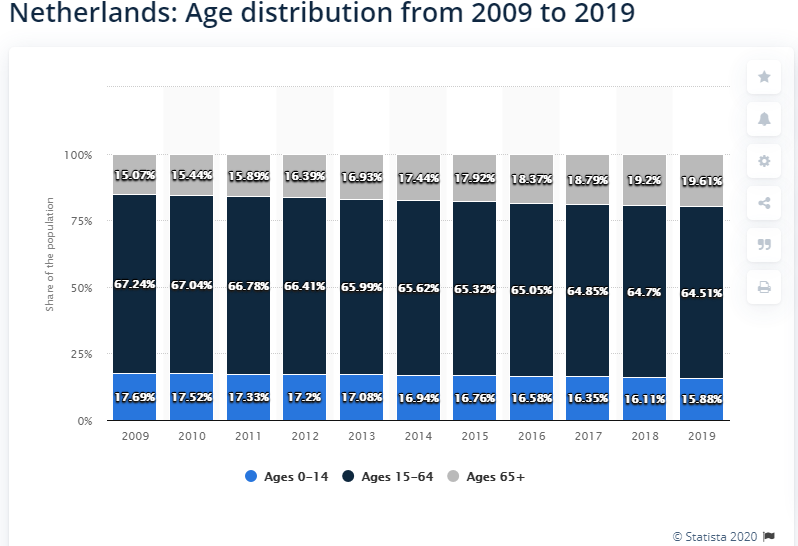
What’s more, the public pension in the Netherlands for someone living alone is of some 1000 €/month, in Spain 797 €/month (proportion 125,5/100). Considering that wages and cost of living are much higher in the Netherlands (average salary in teh Netherlands 2018 45.414 €, in Spain 33.851 €, proportion 134/100), I wonder who is proportionally better treated by the State (add to this that private pension saving plans are common in the Netherlands, but not in Spain).
So, what is all this about? It is about populism and pushing the ball forward. It is about not starting the reforms that would transform those countries that most need them in well prepared, more competitive economies. It is about not being brave. It is about avoiding the unpopular necessary measures to guaranty a sounder future. It is about not wanting to agree on long term policies with their political opposition. It is about promising a better future for the country but making sure that that future will only be better for themselves.
In a recent interview, I mentioned that the distance between rich countries and not so rich will grow in the future. I believe that rich (competitive countries) will develop much quicker than the others, which can be annoying for some people, but it will happen. And I believe that this will happen because the not so rich countries will not make an effort to be more prosperous. They will rely on their uncompetitiveness and expect that others will come to save them when they are leaning on the void. And one day, those others will not come in time.





